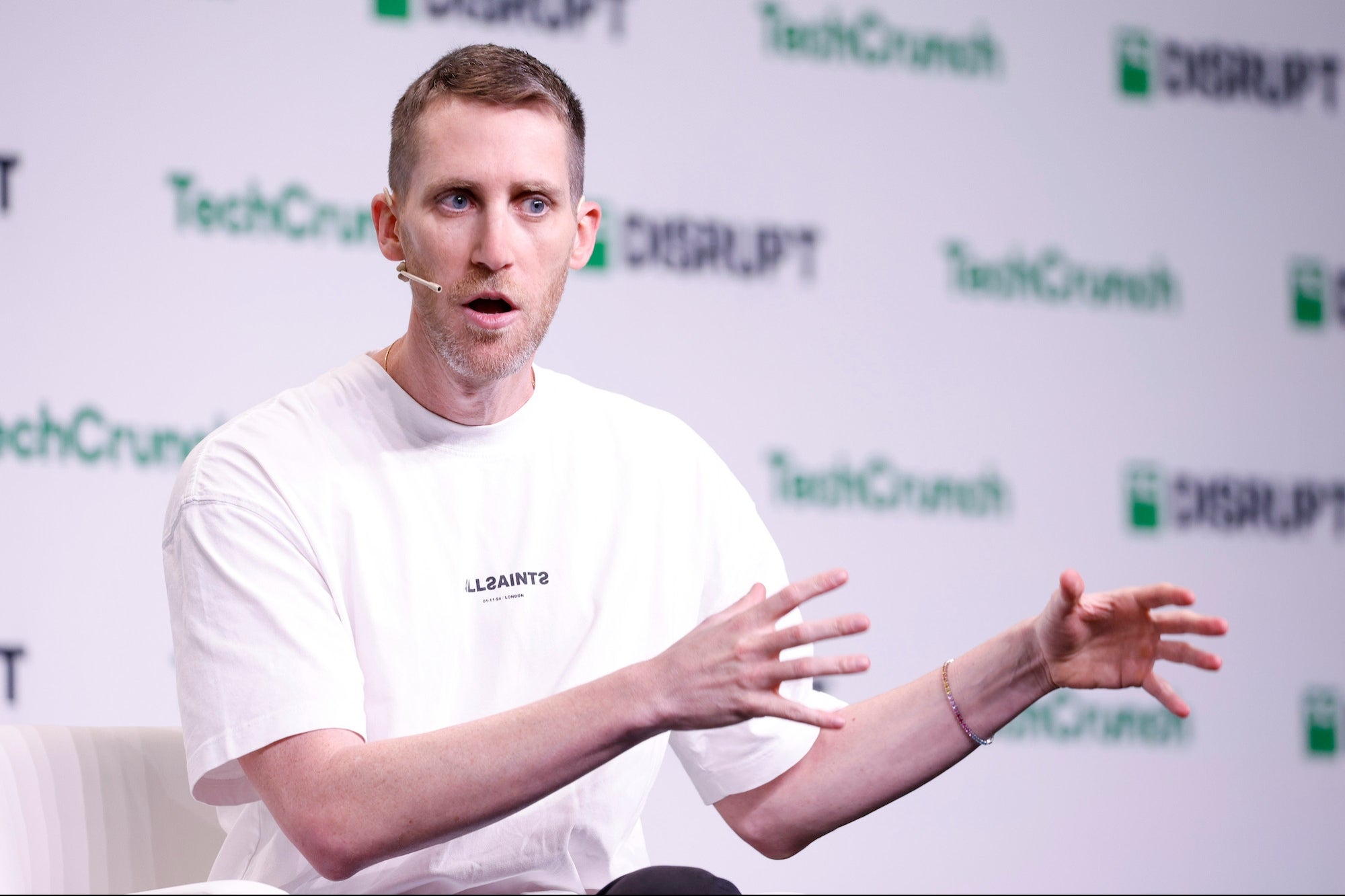'Shark Tank' Funded Founders Share 3 Keys to Executing a Powerful Influencer Marketing Strategy Steve and Angela Watts of Slyde Handboards know the value of marketing to gen Z and millennial consumers through social media influencers.
By Andrew Medal Edited by Dan Bova
Opinions expressed by Entrepreneur contributors are their own.

Brands are paying more and more attention to the influencers in their respective spaces -- because that's where all the engagement happens. I've been able to successfully build up my own brand by leveraging different influencers in the tech and digital spaces.
An influencer marketing strategy has become a crucial element for companies and brands. Essentially, an effective influencer marketing strategy is about pinpointing which influencers are dominating your niche and then finding organic ways to collaborate and effectively present your product or services to their audiences.
The most difficult part of executing an influencer marketing strategy comes down to one thing: it has to feel organic. Influencers in any industry have followings because of the content they share, for free, on a regular basis.
Related: 8 Powerful Ways to Market Your Business on a Limited Budget
There are many influencers out there with thousands, hundreds of thousands or even millions of followers who do very little (or sometimes nothing) to directly monetize their audiences. So the moment a brand enters the picture, audience members become skeptical -- and may stop following altogether.
Steve and Angela Watts are the founders of Slyde Handboards, a Shark Tank contender with investments from Mark Cuban and Ashton Kutcher. The Watts know the value of marketing to gen Z and millennial consumers through social media influencers. In fact, it's a core part of their marketing strategy for the company as a whole.
They're also both part of my Facebook group, and I had the pleasure of picking their brains recently about deploying influencer marketing strategies. Here are three of their keys to success. By following these guidelines, you too can execute a well-formulated influencer marketing strategy.
1. Identify the influencers that align with your brand mission.
Where many brands and companies go wrong when reaching out to potential influencers is being tunnel-visioned on things such as follower count.
After first dipping their toes into the industry, the Slyde Handboards team reached out to some Instagram influencers within their market whom they viewed as perfect matches for the brand. They sent the influencers some free products and believed the influencers would have the best interests of the brand at heart, but quickly realized many influencers are only looking to line their own pockets.
The team recognized that a quick call and shipment of product is not the way to keep key influencers engaged with the brand. This led to the emergence of the company's Ambassador program.
They structured deals with social media stars who were then categorized as Ambassadors, Pro-Ambassadors and Riders, each with a different level of commitment and perks. This led to a long-term relationship with each influencer, and helped keep the influencer engaged with the product in the long term.
Related: Is Crocs Trying to Ditch Its Image of Lazy Comfort?
"We try very hard to create a community, a family. We look for people who have a passion for the ocean and outdoor adventures, and who have an interesting story to share," the Watts say. "Some of our key influencers include bodysurfing icon Sean Enoka of Hawaii and up-and-coming legend Makena Magro of California."
Their Ambassador program is not a value-for-shoutout marketing exchange. Rather, it's a brand-alignment campaign. Due to the rise of social media accounts that appear to be very large and popular because they've purchased followers, it's crucial to establish that the people you work with actually have some level of influence in their communities.
"We would rather partner with someone with 200 followers, 50 comments per post and 150 likes per post, since that means they have the ear of 150 close friends, than someone with 20,000 followers and 70 likes per post," the founders say.
2. Ensure that the deals you structure with influencers will be profitable in the long run.
The biggest challenge brands and companies face with marketing always comes down to return on investment. They need to know that for every dollar they spend on marketing, they will see back that same dollar plus a percentage more. Otherwise, their marketing budget will be operating at a loss.
"We look at each influencer relationship as a worthwhile investment, and never offer more than we're willing to potentially lose," the Watts explain. "The deals we structure can include gear and specialty discounts, and most recently we've sent a few of our top influencers to Tahiti to take part in a competition called the Watermans Tour, which we've sponsored with products."
To keep each relationship profitable, it's crucial that the lines of communication are always open so that everyone remains on the same page. Expectations must be properly set from the beginning.
Related: 5 Reasons Businesses Shouldn't Keep Ignoring Content Marketing
3. Take deliberate steps to ensure the success of each influencer collaboration or campaign.
The wrong way to run an influencer marketing strategy is to leave everything up to the influencers. While you do want to give them creative freedom, you need to establish some sort of game plan as to the content, frequency and messaging. Again, let the influencers use their own voices, but help guide them toward the clearly established end goal you wish to see as a company.
"We have a written contract that our Ambassadors and influencers sign, with clear and concise expectations," the Watts say. "We then review progress and performance on a monthly basis, and also spend a considerable amount of time on our end, thinking of better ways we can work with our team of influencers. It's our job to put them in a position to succeed."
If you are looking to build a community around your brand, you have to spend quality time nurturing each influencer. By doing so, you can help them to help you build your business.











